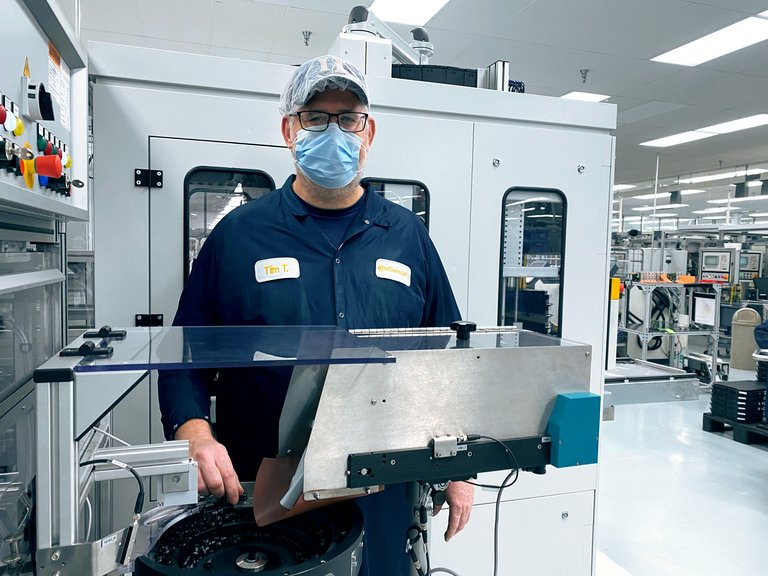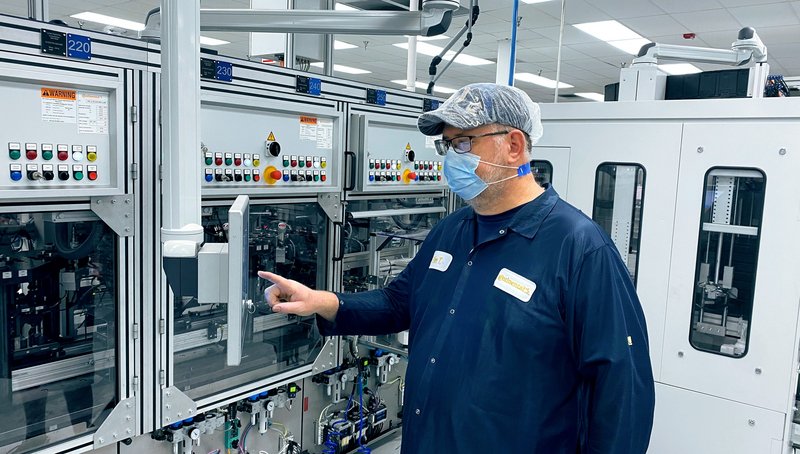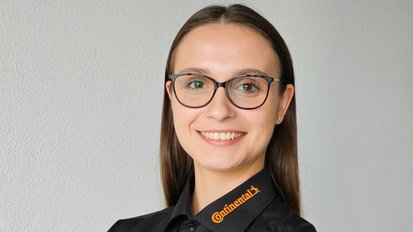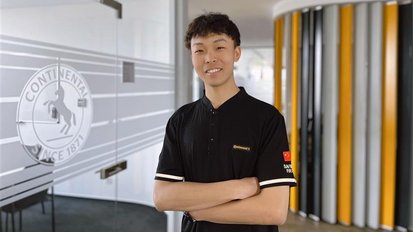What it’s like to work at Continental with a hearing impairment
Tim Teeters has worked at Continental’s automotive manufacturing facility in Morganton, N.C., for 21 years. He’s one of four hearing-impaired employees at the plant, which is located just down the street from the renowned North Carolina School for the Deaf. The state-supported school was founded in 1894 and helped prepare Tim for his successful manufacturing career.
I was born in nearby Hickory, N.C., then we moved to Morganton when I was 12 years-old. I went to the School for the Deaf from kindergarten all the way to high school.
After school, I went to Gallaudet University in Washington, D.C. for a year and a half, then came back to Morganton and started to work for another manufacturing company. I worked there for nine and a half years and then they shut down.
I was unemployed for two weeks, then a few different people encouraged me to apply at Continental. They said it was a good company with good pay and [BA(1] benefits, so I applied, got the job and have been here for almost 21 years.
I work in Assembly, which is part of the production line that makes valves for various Continental braking systems.
I’ve worked on the bracket line and moved around the plant several times. If I see a job posting, I ask about it and, if it’s interesting, I apply. I was able to get experience driving a forklift.
At first, we started with interpreters when I was hired. But after a while I didn’t really need an interpreter and haven’t had much difficulty since then, especially with written communications. Colleagues will send me text messages so I can understand what’s going on.
Being deaf doesn’t hold me back at all. There are also a few people at the plant who learned sign language so they could communicate with me and my deaf colleagues.
If there are plant-wide meetings, we’ll have an interpreter. I’ll nudge my supervisor every now and then to get information. I’m not afraid to ask people for clarification, so it really isn’t a problem. There are also certain safety measures in place for us. For example, if a forklift operator honks the horn, I can’t hear it at all – but they have flashing lights on them, so I feel safe.
If I were to explain to current School of the Deaf students what it’s like to work at Continental, I would encourage them to actually come here and see the lines running, see the technical things. There are jobs here for the hearing impaired.
We have a lot of robotics. It’s kind of hard to explain without actually seeing it, seeing what my job takes. I’ve noticed we have more and more new technology coming in on the lines. I feel confident that Continental will do even better in the long run and I want to stay here until I retire.
We have a lot of good people at the plant and we rely on strong teamwork.
I’ve noticed that some people might be afraid to talk with me or other deaf people, because they’re not sure how to approach us to communicate. But all they need to do is tap my shoulder, be willing to write on a piece of paper and not be afraid.
This article was written by our employee.





